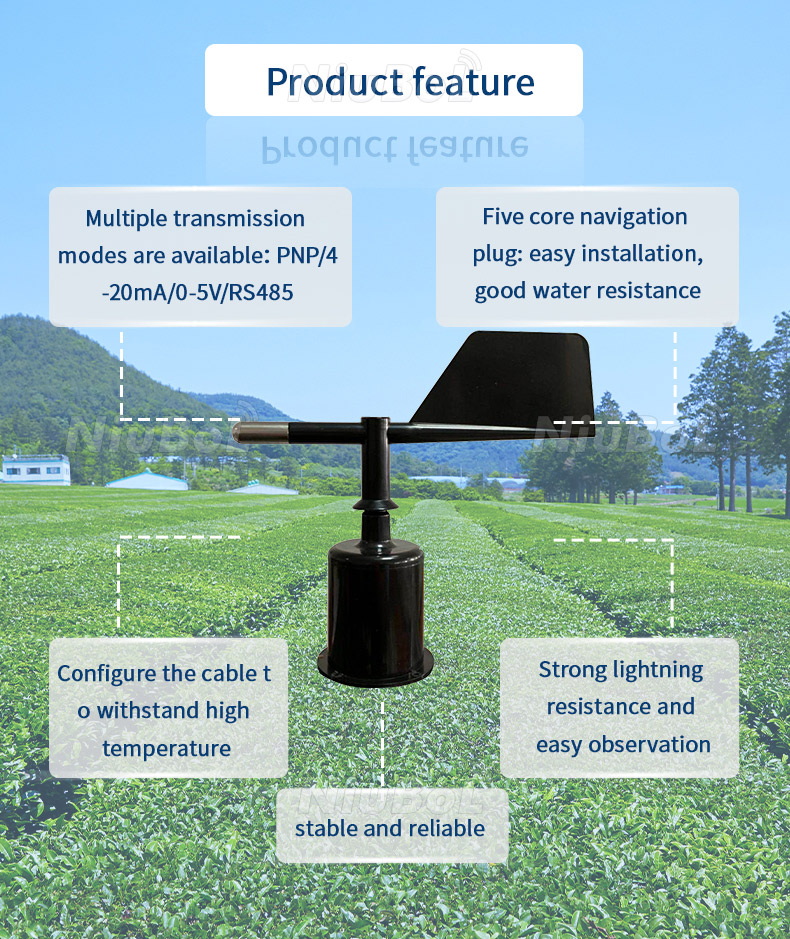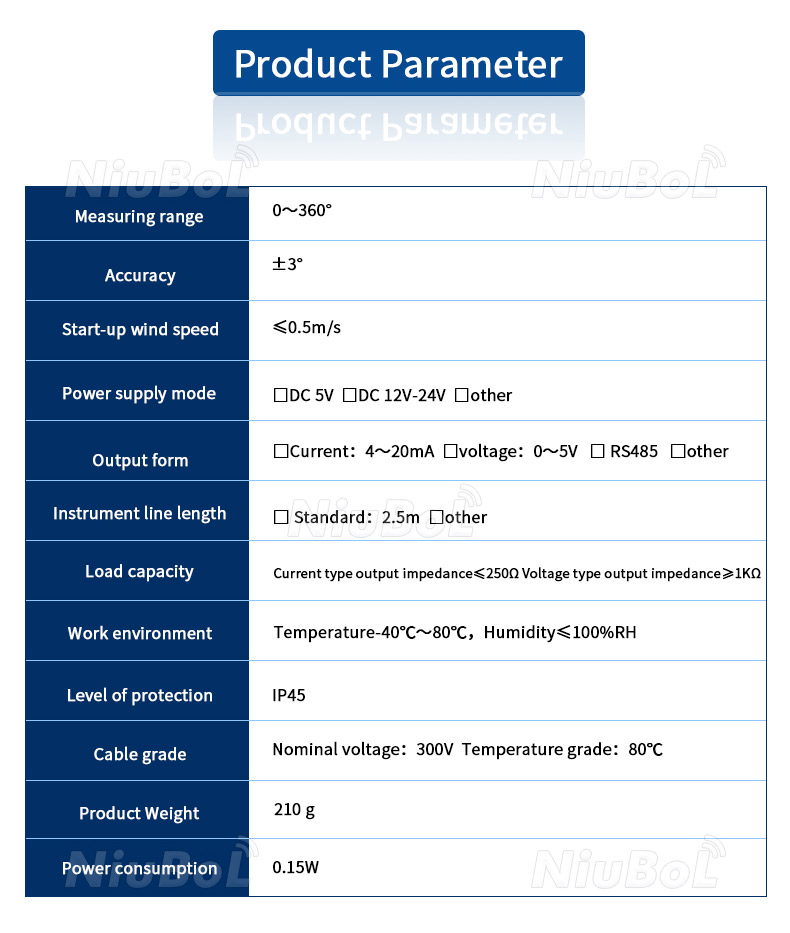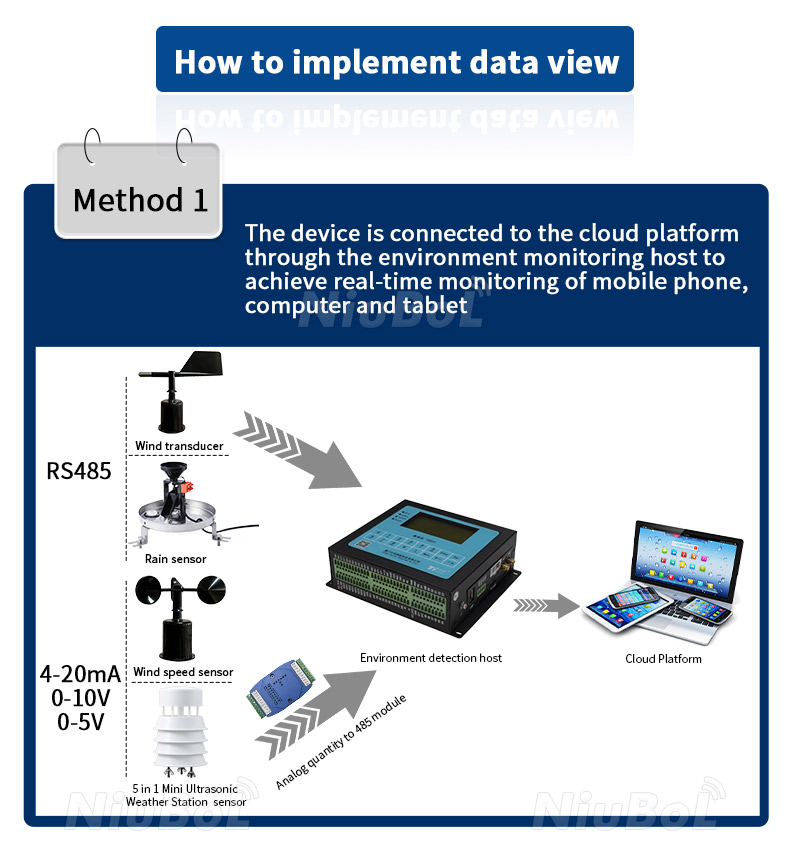

— Blogs —
—Products—
 Consumer hotline +8618073152920
Consumer hotline +8618073152920 WhatsApp:+8615367865107
Address:Room 102, District D, Houhu Industrial Park, Yuelu District, Changsha City, Hunan Province, China
Product knowledge
Time:2023-08-17 09:48:45 Popularity:1473
Wind direction sensors (or anemometers) can be classified into several types based on their working principles and applications. Here are a few common classifications along with their functions and uses:
1. Mechanical Wind Direction Sensors: Mechanical wind direction sensors measure wind direction using mechanical structures. They typically include an indicator device like a wind vane or wind wing, which rotates or deflects based on changes in wind direction. These sensors provide basic information about wind direction and are used for simple navigation, weather observations, and wind energy utilization.
2. Photoelectric Wind Direction Sensors: Photoelectric wind direction sensors detect wind direction using photoelectric effects. They typically consist of a pair of photoelectric emitters and receivers. When wind blows, the light beam can be blocked or scattered due to changes in wind speed and direction, generating electrical signals. These sensors provide digital or analog output for wind direction information and find applications in weather stations, weather satellites, aviation navigation, and weather forecasting.
3. Ultrasonic Wind Direction Sensors : Ultrasonic wind direction sensors utilize ultrasonic wave technology to measure wind direction. They emit ultrasonic waves and receive echoes to determine the wind's direction. These sensors provide accurate wind direction information and are suitable for aviation, weather monitoring, environmental meteorology, and wind power generation.
4. Magnetic Wind Direction Sensors: Magnetic wind direction sensors utilize magnetic materials or magnetic sensors to detect the relationship between Earth's magnetic field and wind direction. By measuring changes in the magnetic field, the wind direction can be determined. These sensors offer stable and precise wind direction information and are used in maritime navigation, weather observations, and ocean research.

The main function of wind direction sensors is to measure the direction of wind and provide corresponding output signals or indications. They have widespread applications in many fields, including but not limited to:
1. Weather observations and forecasting: Wind direction sensors are vital components of weather stations, used to monitor and record changes in wind direction, supporting weather forecasting and meteorological research.
2. Aviation and maritime navigation: Wind direction sensors are used for flight and maritime navigation to ensure the safe operation of aircraft and vessels.

3. Building engineering: Wind direction sensors are employed in building engineering to assess the impact of wind on structures, assisting designers in selecting appropriate structures and materials to ensure stability and safety.
4. Wind energy utilization: Wind direction sensors play a significant role in wind power generation systems, controlling wind turbine orientation and maximizing the efficiency of wind energy utilization.
5. Environmental monitoring: Wind direction sensors can be used for environmental monitoring and pollution control. By providing wind direction information, they help evaluate air quality and the direction and speed of pollutant dispersion.

In summary, wind direction sensors are essential in meteorology, aviation, construction, environment, and energy fields, playing crucial roles in efficient wind resource utilization and safe operations.
Related recommendations
Sensors & Weather Stations Catalog
Agriculture Sensors and Weather Stations Catalog-NiuBoL.pdf
Weather Stations Catalog-NiuBoL.pdf
Related products
 Combined air temperature and relative humidity sensor
Combined air temperature and relative humidity sensor Soil Moisture Temperature sensor for irrigation
Soil Moisture Temperature sensor for irrigation Soil pH sensor RS485 soil Testing instrument soil ph meter for agriculture
Soil pH sensor RS485 soil Testing instrument soil ph meter for agriculture Wind Speed sensor Output Modbus/RS485/Analog/0-5V/4-20mA
Wind Speed sensor Output Modbus/RS485/Analog/0-5V/4-20mA Tipping bucket rain gauge for weather monitoring auto rainfall sensor RS485/Outdoor/stainless steel
Tipping bucket rain gauge for weather monitoring auto rainfall sensor RS485/Outdoor/stainless steel Pyranometer Solar Radiation Sensor 4-20mA/RS485
Pyranometer Solar Radiation Sensor 4-20mA/RS485
Screenshot, WhatsApp to identify the QR code
WhatsApp number:+8615367865107
(Click on WhatsApp to copy and add friends)
